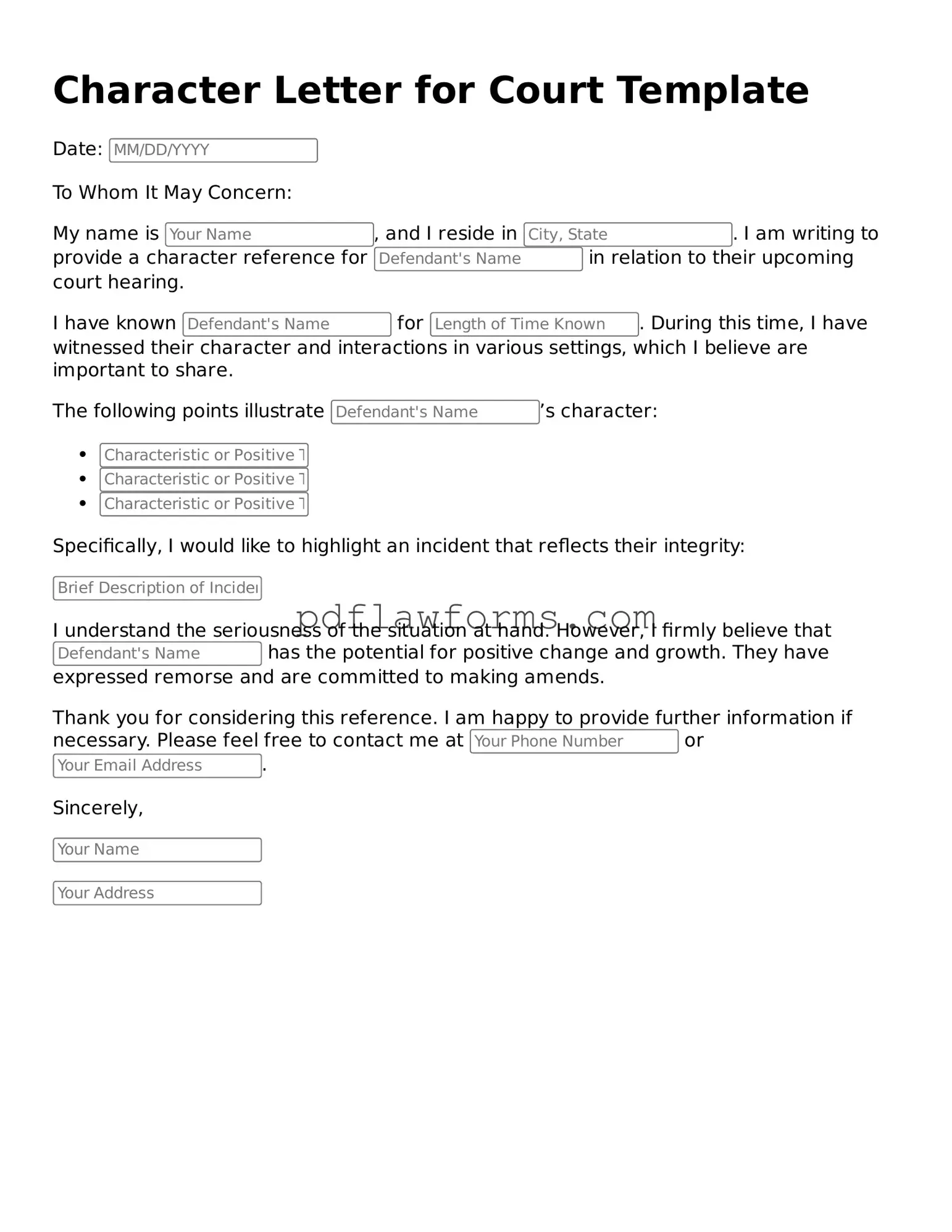Official Character Letter for Court Form
The Character Letter for Court is a written statement that provides insight into a person's character, often submitted to support an individual during legal proceedings. These letters can play a crucial role in influencing a judge's perception, highlighting positive traits and personal experiences. If you're ready to make a difference in someone's case, consider filling out the form by clicking the button below.
Make My Document Online

Official Character Letter for Court Form
Make My Document Online
You’re halfway through — finish the form
Edit and complete Character Letter for Court online, then download your file.
Make My Document Online
or
⇩ Character Letter for Court PDF
